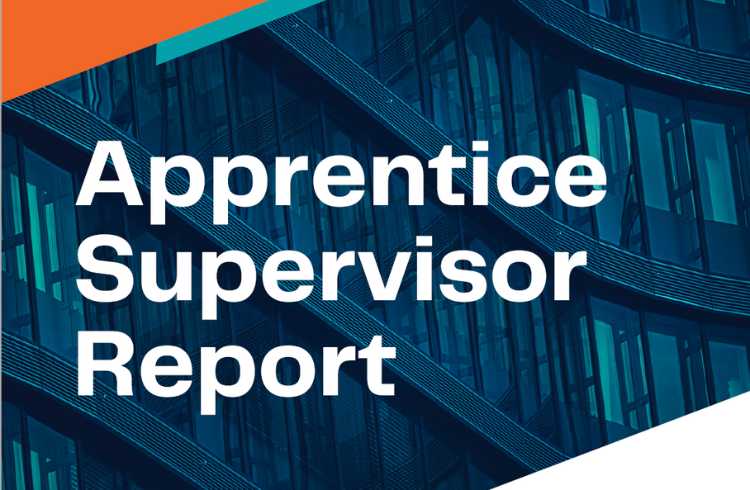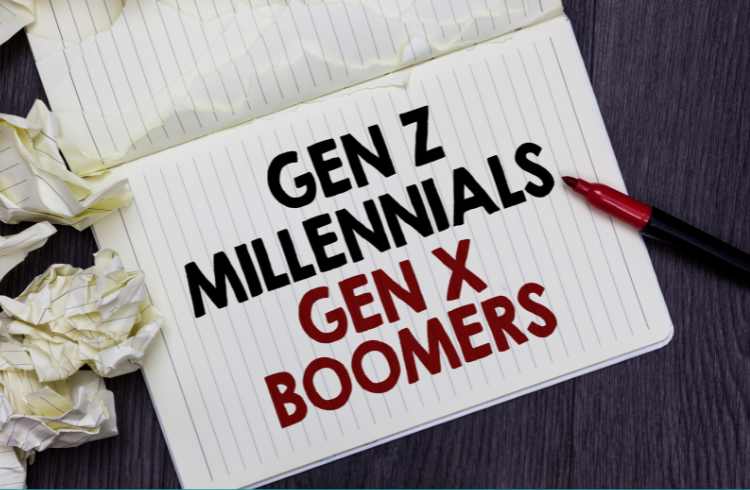Customer Service Apprenticeships
Level 2 Customer Service Apprenticeship
Customer service apprentices can play a vital role in your workforce. Whether their interactions are via telephone, post, email, text, or social media, strong communication skills are critical.
Our level 2 customer service practitioner apprenticeship will upskill individuals to participate in better verbal and written communication, enhance their problem-solving skills, and teach them how to build rapport with customers and colleagues. All apprentices receive specialised training and will learn to build positive relationships for a seamless customer service experience.
Advantages of customer service apprenticeship for your business
Recruiting and developing employees with apprenticeships can help you drive long-term growth in your business. Some of the core benefits of a customer service apprenticeship include:
- Enhanced customer satisfaction and loyalty: Apprentices receive specific and structured training which can lead to more effective interactions with customers, improved satisfaction rates and increased customer retention.
- Improve your brand reputation: Fully trained team members can contribute to more positive customer experiences and will help to reinforce your brand’s values.
- Demonstrate your commitment to staff development: An investment in apprenticeships shows that you are committed to the progression and development of your team, creating a more positive and productive working environment.

The Damar Difference
At Damar Training, we’ve got extensive experience in our field and work in partnership with our employers to deliver long-term value through each of our apprenticeship training programmes. If you’re new to apprenticeships, we appreciate that there is a lot to try and understand. But we have the expertise to guide you through that process, as well as the passion and dedication to create stronger workforces through apprenticeship training.
Some of the key stand-outs of our customer service apprenticeships include:
Our processes
We offer seamless enrolment and onboarding processes, ensuring a smooth and efficient learning experience for both apprentices and employers. These processes are transparent and clearly communicated, keeping you informed and up-to-date through every step of your apprentice’s journey.
Our systems
Our engaging and accessible systems provide easy access to learning materials, resources, and support, ensuring accuracy and speed in all operations. We use systems such as OneFile, Profiler, Damar OpenLearning, and our apprentice forums to encourage shared knowledge and learning.
Our people
Our experienced team is passionate about helping organisations achieve their full potential. We are there to offer support and guidance, as well as bring real-world knowledge and practical insights to our programmes.
Medical pathway
We have a specialist medical pathway, incorporating a Mediterm level 2 award, which supports working and communication in healthcare settings.
Interested? Make an enquiry with us today!


“Our apprentice manages our inbox, prioritising messages and flagging things up to higher levels when needed. The way our apprentice has taken everything on board, it’s just helping the service run so much smoother.”
Ann-Marie McGilvray
ICS Administration Manager
Wrightington, Wigan and Leigh NHS Trust
Our customer service apprenticeship delivery
Want to understand just what to expect from a customer service apprenticeship with Damar? We understand the importance of a well-structured and clear learning journey, which is why the delivery of all of our apprenticeships has been designed to provide a comprehensive and engaging experience. Our delivery includes:
- Pre-work: Our apprentices will engage in video content and other resources that relate to the customer service modules.
- Group coaching sessions: These sessions will allow apprentices to ask questions, engage in discussions, and prepare for their individual tasks ahead.
- Individual learning activities: Apprentices will work through an activity brief, building evidence for their portfolio along the way, which will prepare them for their end-point assessment.
- Main learning: Apprentices will participate in self-directed and interactive content that is available on our online learning platform.
- 1:1 coach visiting: Every six weeks, a Damar coach will meet with the apprentice to review their progress, discuss any issues, and assess their personal development. They will also sign off on completed modules.
- Review meetings: Every 12 weeks, the coach will meet with the apprentice and their line manager for a more in-depth discussion regarding their progress.
Customer service apprenticeships take 15 months (including preparation for end-point assessment).
People of all ages and educational backgrounds can undertake customer service apprenticeships, but there are some restrictions, the most important of which are:
- The employer and the training provider must ascertain that the apprenticeship will allow the individual to gain substantive new skills. The training therefore needs to be materially different from any prior qualification or previous apprenticeship.
- The apprenticeship must align with the skills needs of the apprentice’s role.
- The apprentice must be employed, usually for 30+ hours a week, and work more than 50% of their time in England.
- All apprenticeships must take at least 12 months with apprentices spending a minimum of 6 hours per week in off-the-job training. All Damar apprenticeships plan for more than the legal minimum. There is more on how we maximise the benefits of off-the-job training here: https://damartraining.com/news/2023/so-what-is-off-the-job-training/.
Customer service apprenticeships are formed of nine carefully planned and sequenced 6-week modules that help apprentices learn and apply the knowledge, skills and behaviours required for each of the core occupational duties undertaken by customer service practitioners.
- Module 1: personal presentation, professional language, developing self
- Module 2: personal organisation, product & service knowledge
- Module 3: understanding your organisation, brand promise, core values and policies
- Module 4: knowing customers, being open to feedback
- Module 5: regulations & legislation, equality
- Module 6: interpersonal skills, communication, influencing skills
- Module 7: systems and resources, teamworking, your role and responsibilities
- Module 8: dealing with conflict, challenging customers
- Module 9: customer experience, right first time
Employer partners and apprentices are supported throughout the apprenticeship. The apprentice has a dedicated coach who provides 1:1 support, alongside the group coaching sessions and apprentice forums where they can engage with other appentices on the same programme. Review meetings with the apprentice, line manager and coach are held every 12 weeks.
Apprentices with additional learning needs also have the opportunity to meet with our SEND Co-ordinator, who will put together a personalised support plan.
In addition, employer partners have a business development manager/executive they can contact at any time.
All apprenticeships embed the functional use of maths and English as well as personal development topics in areas such as equality and diversity and British Values. Apprentices unable to evidence maths and English at GCSE grade 4 or above may need to take functional skills exams as part of the apprenticeship. Additional training is provided if necessary.
- A showcase, prepared by the apprentice that demonstrates their professional competence (65% weighting)
- Practical observation (at least 1 hour) with independent end-point assessor (20% weighting)
- Professional discussion (1 hour) with independent end-point assessor (15% weighting).
Customer service apprenticeships are a springboard for progression to more senior customer service roles but also to more senior administrative, team leading and management positions. Damar apprentices have progressed to other higher-level apprenticeships, most commonly business administrator, team leader or supervisor.
If your annual UK wage bill is over £3 million, the cost of training can be funded via the Apprenticeship Levy. We can help you navigate your Apprenticeship Service account to access this funding.
If your annual UK wage bill is below £3 million, the government covers 95-100% of the training costs.
For apprentices aged up to 21, the apprenticeship is fully government-funded*. For apprentices aged 22 and over, the apprenticeship is 95% government-funded*. These new funding rules are applicable to apprentices starting from 1 April 2024.
*Please note: Some apprenticeships have accreditation costs which are not eligible for government funding
We have regular start dates throughout the year for our apprenticeships. Please get in touch for more information.
Develop your team's potential with Damar
Create a customer service team that stands out from the competition with the support of our customer service apprenticeships. By working with Damar, you can rely on tailored apprenticeship programmes that ensure your employees are gaining the skills required to deliver excellent customer service. With over 40 years of experience, you can trust us to guide you on your upskilling and recruitment journey.
Contact us for further information regarding our apprenticeships – our expert team will be more than happy to answer any queries you may have.
Customer service apprenticeship FAQs
A level 2 customer service apprenticeship will give your apprentice a qualification equivalent o 5 GCSEs at grades 4-9/A-C. As part of the apprenticeship, they will engage in off-the-job training, create their own portfolio of evidence, and complete an end-point assessment to evaluate their performance.
Our customer service apprenticeships are designed to equip individuals with a comprehensive set of skills that are essential for navigating customer-facing roles. These include communication skills, customer interactions, and technical and operational skills such as product knowledge and time management.
Here at Damar, our level 2 customer service apprenticeship takes 15 months, which includes preparation for their end-point assessment. For further information or if you have a specific question regarding our apprenticeships, have a read of our employer FAQs.
Many customer service apprentices progress on to the level 3 business administration apprenticeship. For apprentices looking to specialise in particular career pathways, an accounting apprenticeship or a paralegal apprenticeship could be an option.


